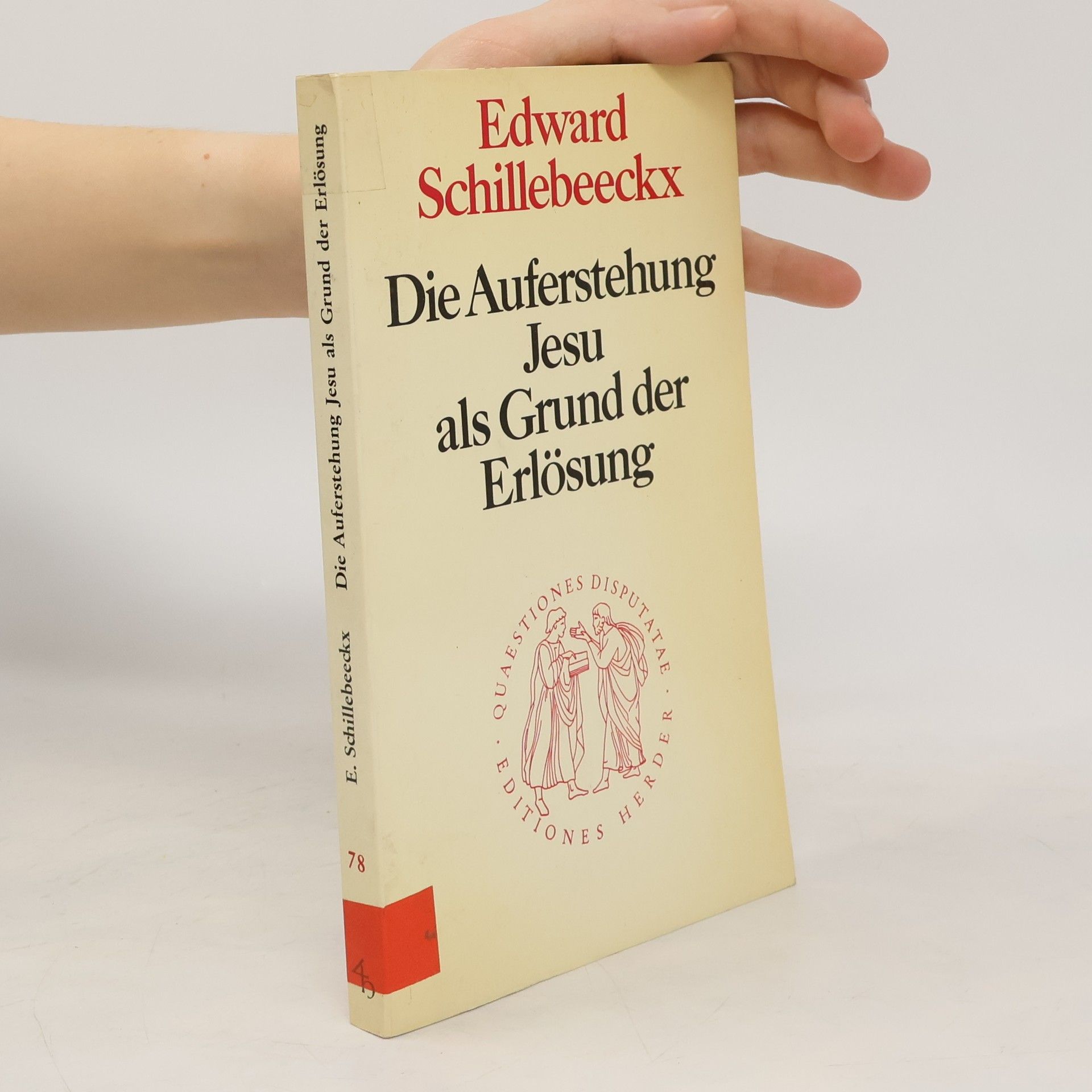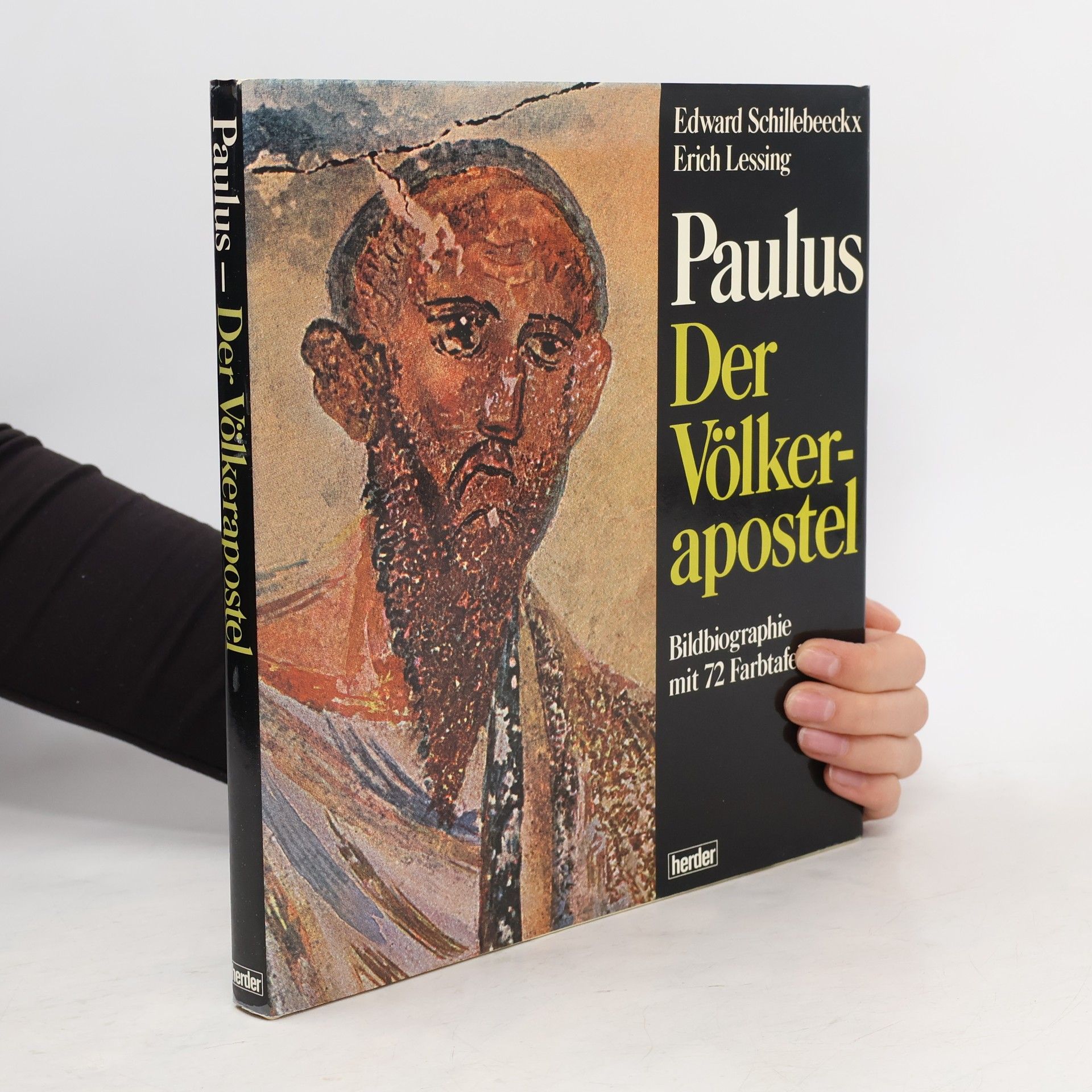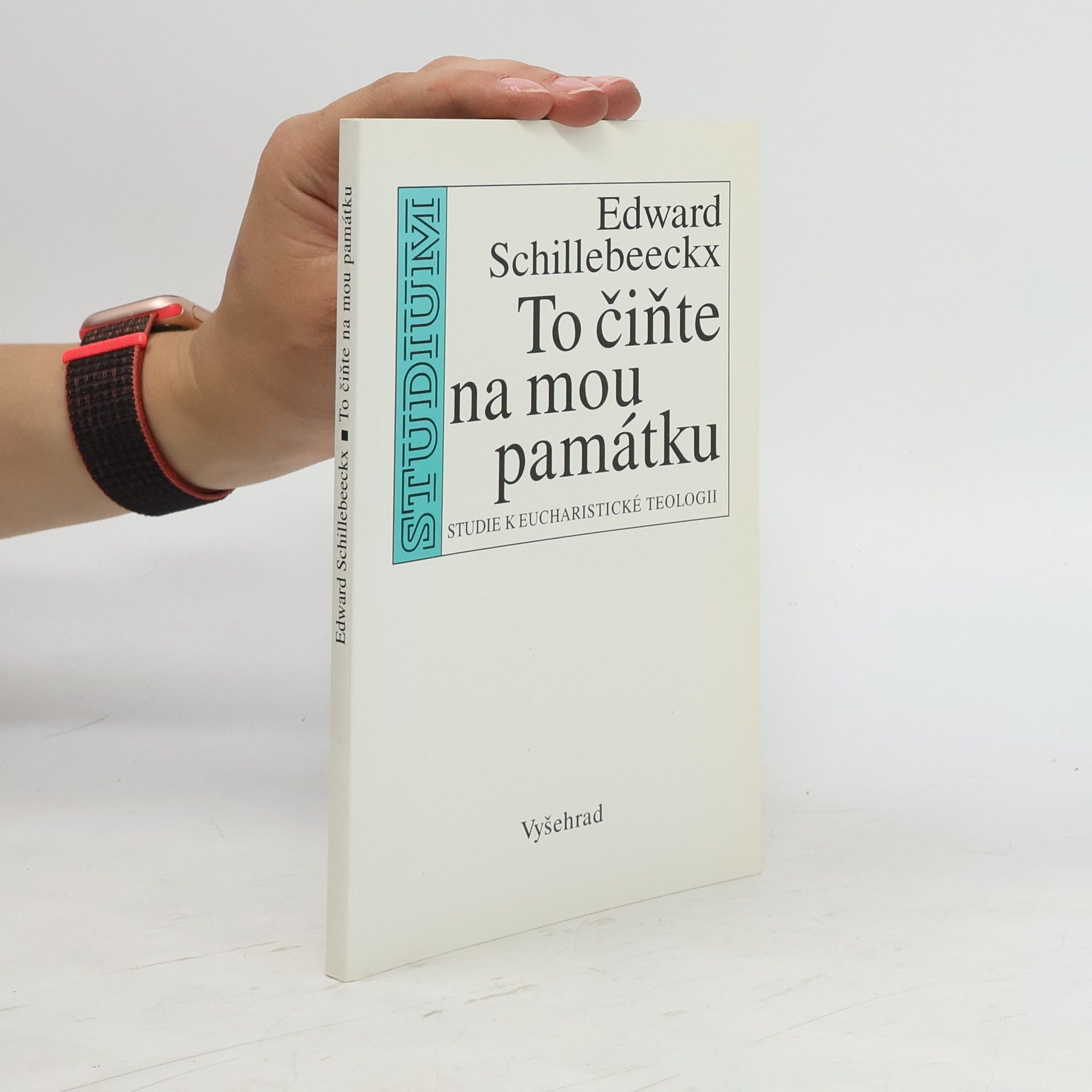To čiňte na mou památku : studie k eucharistické teologii
- 125 stránek
- 5 hodin čtení
Edward Schillebeeckx byl belgický římskokatolický teolog, jehož myšlenky přesahují hranice teologie. Jeho spisy, přeložené do mnoha jazyků, zkoumají vztah mezi vírou a světem, často s důrazem na sociální a politické důsledky náboženského přesvědčení. Jeho přístup se vyznačoval hlubokou reflexí a snahou o propojení tradičních náboženských konceptů s moderními výzvami. Tímto způsobem ovlivnil nejen teologické kruhy, ale i širší debatu o roli náboženství v současné společnosti.







Kniha Lidé jako Boží příběh je posledním dílem Schillebeeckxovy trilogie, věnované podstatným rysům křesťanské zkušenosti s Bohem v Ježíši Kristu. České vydání je (podobně jako francouzské) doplněno o zvláštní autorovu předmluvu, v níž jsou vyjádřeny stěžejní myšlenky předchozích dvou dílů. Tématy knihy, která uplatňuje nový teologický přístup a zkoumá základní teologické otázky „zdola“, jsou například vztah mezi dějinami světa a dějinami spásy, poměr mezi dějinami zjevení a dějinami utrpení, charakteristika víry v Boha v eticky autonomním sekularizovaném světě nebo možnost demokratického uspořádání církve. Kniha již byla přeložena do francouzštiny, němčiny a angličtiny a bez nadsázky lze říci, že představuje jakousi závěť velkého teologa, jehož myšlení krystalizovalo v průběhu kulturních, sociálních a ideologických bouří 20. století.
The controversial Flemish theologian looks at the historical Jesus and how early Christianity developed